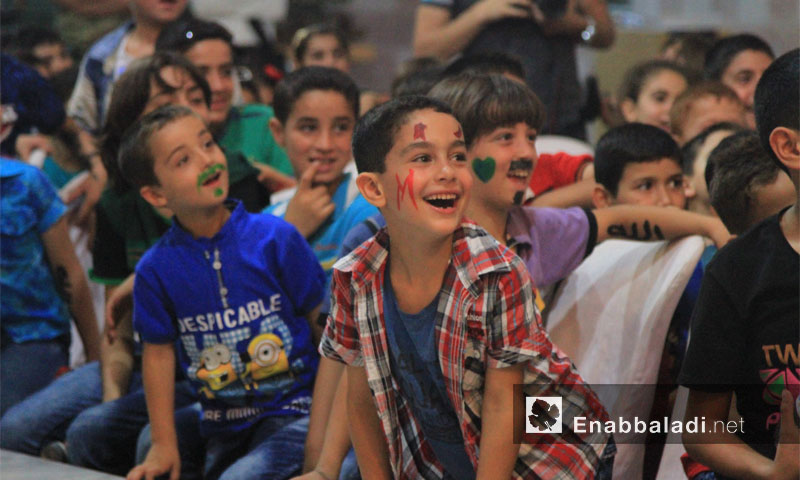



More than 35 percent of Syrian children have known nothing but war, having endured bombardment, destruction, hunger and siege, and in some cases the loss of one or more parent.
All this has captured the outlines of a psychological crisis of which have appeared for some Syrian children, which must be contained before it becomes a humanitarian disaster in a society that does not recognize the urgent need to spread a culture of mental health awareness, especially among children.
Centers for children’s psychological support have put their mark on areas outside Syrian regime control where there has been relative stability in civilian life, especially Daraa, Hassakeh and some parts of Idleb.
Enab Baladi visited some of these centers to better understand the substance of their work and the difficulties they face.
Tafoolti in Qamishli: Toward preparing a “sound generation”
The Tafoolti (My Childhood) group for children in the northern city of Qamishli has been active since 2014, and has taken on the responsibility for reducing the pressure and the burdens of war which have affected children’s mental health in the area for seven years. They have included in their aims the protection of children and preparing a “healthy” generation, along with the task of building a “healthy” civil society in the country.
Yara, the organization’s director, believes that children are the weakest class of society who pay the price of the ongoing war waged between adults. In her interview with Enab Baladi, she said that Syrian children were the most psychologically and physically affected after losing their security and stability and losing relatives or family members.
Regarding the difficulties faced, the director of the Tafoolti center said that the first level of material difficulties is related to donors, while other problems include the lack of skills and shortage of specialists in the field of mental health.
Yara pointed to the absence of concern in Syrian society for psychological support for children and even adults, saying it is a barrier for the work of these groups, as such support is still considered a luxury, and is seen as merely games and entertainment activities offered by NGOs to children without deeper importance.
She added that despite receiving a good response from children, the response from their parents “has not been enough yet.”
“We have been able to make a difference for the children through our humble work as a child-friendly center. We are happy with the outcomes of our work so far and we hope to be able to give greater services to more of our children,” she said.
Tafoolti is not the only center concerned with psychological support for children in Qamishli, as local groups work in the field as well, including the Samarat and Al-Ehsan organizations, as well as psychological support campaigns arranged by the Save the Children international group.
Qabas in Idleb: Psychological support is no less important than education
Other organizations are also active in the city of Idelb. This includes the Qabas group, which sees as one of its aims the spreading of a culture of psychological health in Syrian society which is no less important than the idea of education.
Ahmed al-Khatib, the coordinator for the Idleb office, told Enab Baladi that the organization seeks to restore normal life for children as it was before the war. This is done by providing an atmosphere of security and safety far from the fear which has come to accompany Syrian children for years, he said.
The group employs psychological guides in Idleb’s schools who offer support and consultation to children to help them improve themselves and hone their talents and developments, Khatib said.
The difficulties which Qabas faces in Idleb are not different from those faced by Tafoolti in Qamishli, as the lack of resources and skills and psychological specialists are a factor shared between them, and makes it necessary to pay attention to the need to prepare specialists in the field of psychological counseling, with support from international organizations.
Khatib said another joint problem was the weak response from families to the idea of the need for their children to have psychological support, saying that this response is relative and to the level of education of parents and the nature of each region.
In its work in Idleb, the Qabas group has had a positive impact by strengthening psychological behavior and culture among many children, aiding them to know their rights and demand them, and learn skills of communication and dialogue, as Ahmed al-Khatib said. The coordinator added that the most prominent impact has been the awareness of children of the need to attend school and continue their studies.
This article was translated and edited by The Syrian Observer. Responsibility for the information and views set out in this article lies entirely with the author.
if you think the article contain wrong information or you have additional details Send Correction